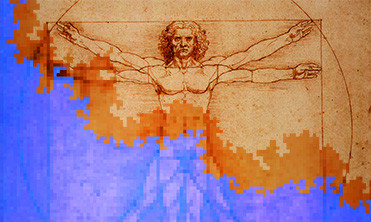One of the main affordances of the emergence of digital modes of scholarship in the humanities is the manner in which they have opened the question anew about the relationship between the content of humanities research and the genre through which that content is best expressed.
The connection between form and content has always been a central question of the humanities. And yet, it is rarely a central question for those engaged in earning a PhD in a humanities discipline. The presumption is that every extended research project in the humanities should be expressed in the form of a proto-print monograph.
Recent discussions with colleagues have caused me to reconsider the advisability of this approach. My conversation with John Lysaker in Digital Dialogue 64: Philosophical Writing, considers the question of writing in philosophy and thinks through the affordances and limitations of the various genres that have emerged in philosophy over time. My colleague, Eric Hayot, has recently suggested that ideas come in a variety of sizes and should find expression in a variety of formats.
For my part, over the past few years, I have sought to thematize the connection between ideas and the genres through which they find expression in terms of performativity.
My recent scholarship has sought to perform the ideas for which it advocates.
In my book on Socratic and Platonic politics, I argue that Platonic writing was a political activity analogous to the Socratic practice of philosophy. And like Socratic philosophy, Platonic writing was designed to cultivate a community animated by the pursuit of truth and a concern for justice. By publishing my book in an enhanced digital format, I hope to provide a platform through which the idea that writing and reading are capable of cultivating community can be enacted in a digital age.
Similarly, our Mellon funded Public Philosophy Journal project is not simply a mode through which to disseminate philosophical ideas associated with issues of public concern; it is rather to be the platform for a community to publicly engage in public philosophy. It’s intent is to perform public philosophy as a mode of publishing about public philosophy, and to embody in that practice, the values of public philosophy we hope to advance.
The expression of an idea should be a performative articulation of the idea itself.
So much of what we do in the professional practices of humanities disciplines involves a kind of performative contradiction. The diversity of ideas for which we advocate are forced into genres of scholarly publication–the article, the dissertation, the 300-page monograph–inconsistent with the ideas themselves.
New modes of digital scholarship open new possibilities of performative consistency. To take advantage of them, however, we will need to teach our graduate students, and learn ourselves, how to express our ideas in ways that are consistent with the content of the ideas themselves.
This is the thought at the center of my opinion piece published today in the Chronicle of Higher Education, Restructuring the Humanities PhD, the occasion for which was the publication of this report by the MLA Task Force on Doctoral Study in Modern Language and Literature released on May 28, 2014.


I certainly agree with Eric Hayot that “ideas should find expression in a variety of formats,” yet it looks like there is not much space for public discussion of the philosophical ideas. We mostly carry our research in a solitary way and our audience is quite limited. That’s why I find the Public Philosophy Journal project to be an excellent avenue that opens up space for that type of interaction among people from a variety of backgrounds.
denizdurmus As a graduate student, did you consider alternative formats for your dissertation? If you could have selected from a number of options, traditional or digital (forgetting concerns about placement for a moment), would you have presented your ideas in a different way than you’ve done with your dissertation?
cplong denizdurmus To tell the truth, although it has always been on my mind, I started thinking about it seriously only after I read this article. My work in no way can escape the charge of “performative contradiction” since my dissertation advocates an existentialist feminist ethics that is based on our inherent interconnectedness. I think I would choose to present my ideas in a more interactive way; such as a blog.